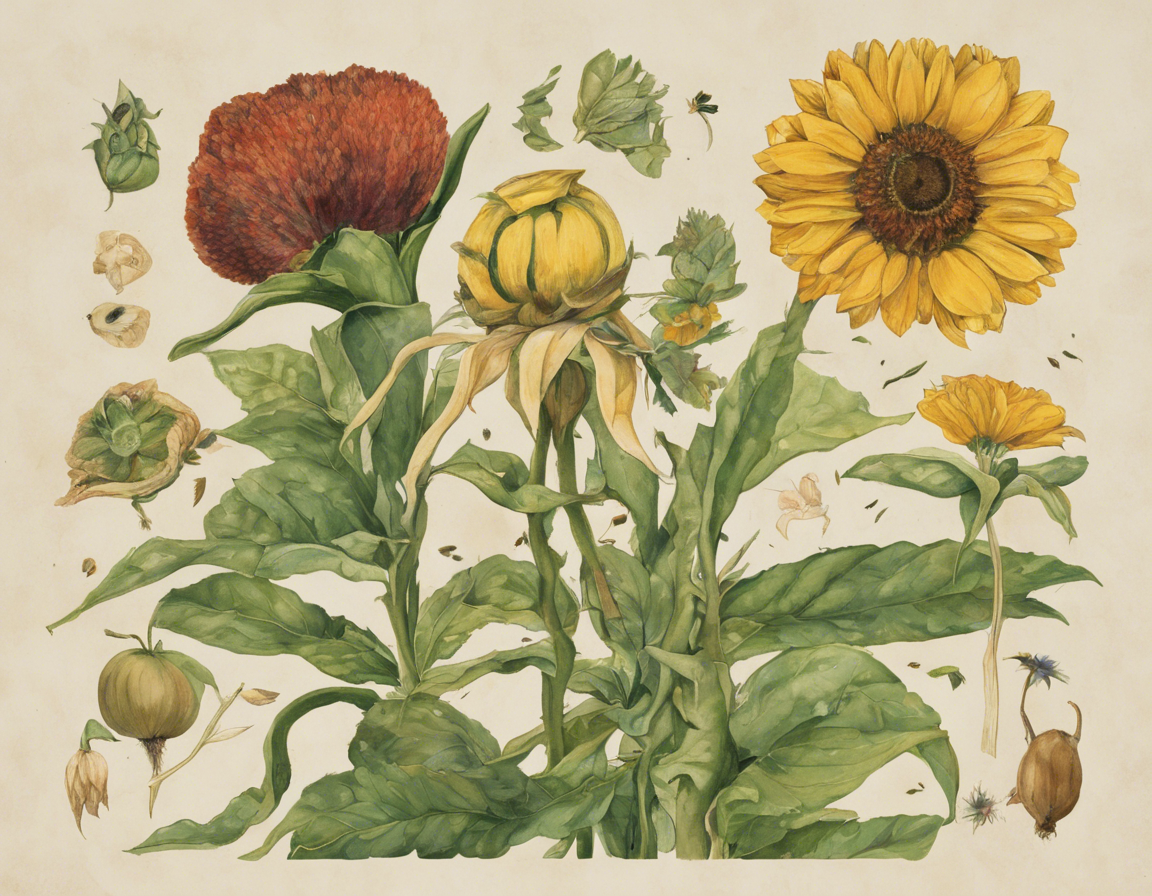Incorporating seeds into your diet is a simple and effective way to boost your nutrition and overall health. Seeds are packed with essential nutrients, including fiber, protein, healthy fats, vitamins, and minerals. By adding a variety of seeds to your meals and snacks, you can support your immune system, improve digestion, and reduce inflammation. In this article, we will explore five key seeds that you should consider adding to your diet for optimal health benefits.
Chia Seeds
Chia seeds are tiny black seeds that are rich in fiber and omega-3 fatty acids. They are excellent for promoting digestive health and supporting weight loss. When chia seeds are soaked in liquid, they form a gel-like consistency that can help keep you feeling full and satisfied. You can add chia seeds to smoothies, yogurt, oatmeal, or use them as a vegan egg substitute in baking.
Flaxseeds
Flaxseeds are another excellent source of omega-3 fatty acids and fiber. They also contain lignans, which have antioxidant properties. Ground flaxseeds are easier to digest and absorb compared to whole flaxseeds. You can sprinkle ground flaxseeds on salads, cereal, or mix them into baked goods for an added nutritional boost.
Pumpkin Seeds
Pumpkin seeds, also known as pepitas, are a good source of protein, magnesium, zinc, and iron. They can help support prostate health in men and are beneficial for heart health due to their magnesium content. Pumpkin seeds make a great snack on their own, or you can add them to salads, trail mix, or homemade granola.
Sunflower Seeds
Sunflower seeds are rich in vitamin E, an antioxidant that helps protect your cells from damage. They also provide healthy fats, magnesium, and selenium. Sunflower seeds can be enjoyed on their own as a snack, sprinkled on top of salads, or incorporated into homemade energy bars or baked goods.
Hemp Seeds
Hemp seeds are a complete source of protein, containing all nine essential amino acids. They are also rich in omega-3 and omega-6 fatty acids and are a good source of magnesium and iron. Hemp seeds have a slightly nutty flavor and can be sprinkled on salads, yogurt, or blended into smoothies for an extra nutrient boost.
By incorporating these five seeds into your diet on a regular basis, you can reap the numerous health benefits they offer. Whether you sprinkle them on top of your meals, blend them into smoothies, or enjoy them as a snack, seeds are a versatile and nutritious addition to any diet.
Frequently Asked Questions (FAQs)
1. Can seeds help with weight loss?
Yes, seeds can be beneficial for weight loss because they are high in fiber and protein, which can help keep you feeling full and satisfied. Additionally, the healthy fats in seeds can support a healthy metabolism.
2. Are there any seeds that are allergenic?
While allergies to seeds are less common than allergies to nuts, some people may be allergic to seeds like sesame seeds or poppy seeds. It is essential to be aware of any potential allergies and consult with a healthcare provider if you have concerns.
3. How should seeds be stored to maintain freshness?
Seeds should be stored in a cool, dry place away from sunlight to maintain their freshness. You can also store seeds in the refrigerator or freezer to extend their shelf life.
4. Can seeds be eaten raw or do they need to be cooked?
Many seeds can be eaten raw and offer excellent nutritional benefits in their natural state. However, some seeds may be more easily digested or have enhanced flavors when toasted or roasted.
5. Are seeds suitable for people following a gluten-free diet?
Yes, most seeds are naturally gluten-free, making them an excellent choice for individuals who need to avoid gluten in their diet. However, it is essential to check labels and ensure that seeds have not come into contact with gluten-containing products during processing.
6. Can seeds go bad?
Seeds have a shelf life, and over time they can go rancid, especially if not stored properly. It is essential to check the expiration date on seed packages and store them correctly to maintain their freshness.
7. Are there specific seeds that are beneficial for heart health?
Yes, seeds like chia seeds, flaxseeds, and pumpkin seeds are particularly beneficial for heart health due to their omega-3 fatty acid content, which can help reduce inflammation and support cardiovascular function.
8. What is the recommended daily intake of seeds?
The recommended daily intake of seeds can vary depending on individual nutritional needs. However, incorporating a variety of seeds into your diet a few times a week can provide significant health benefits. Consult a healthcare provider or nutritionist for personalized recommendations.
9. How can seeds be incorporated into a child’s diet?
Seeds can be ground and added to smoothies, sprinkled on top of yogurt or oatmeal, or mixed into homemade granola bars or energy balls for a child-friendly snack. It is essential to be mindful of choking hazards and introduce seeds gradually into a child’s diet.
10. Are there any side effects of consuming seeds in large quantities?
While seeds are nutritious, consuming them in excessive amounts may lead to digestive issues for some individuals, such as bloating or gas. It is best to consume seeds in moderation as part of a balanced diet.
In conclusion, seeds are nutrient-dense powerhouses that can enhance your overall health and well-being when incorporated into your daily meals and snacks. By choosing a variety of seeds like chia, flax, pumpkin, sunflower, and hemp seeds, you can enjoy a wide range of health benefits, including improved digestion, heart health, and immune function. Experiment with different ways to include seeds in your diet and discover delicious new ways to boost your nutrition and vitality.




